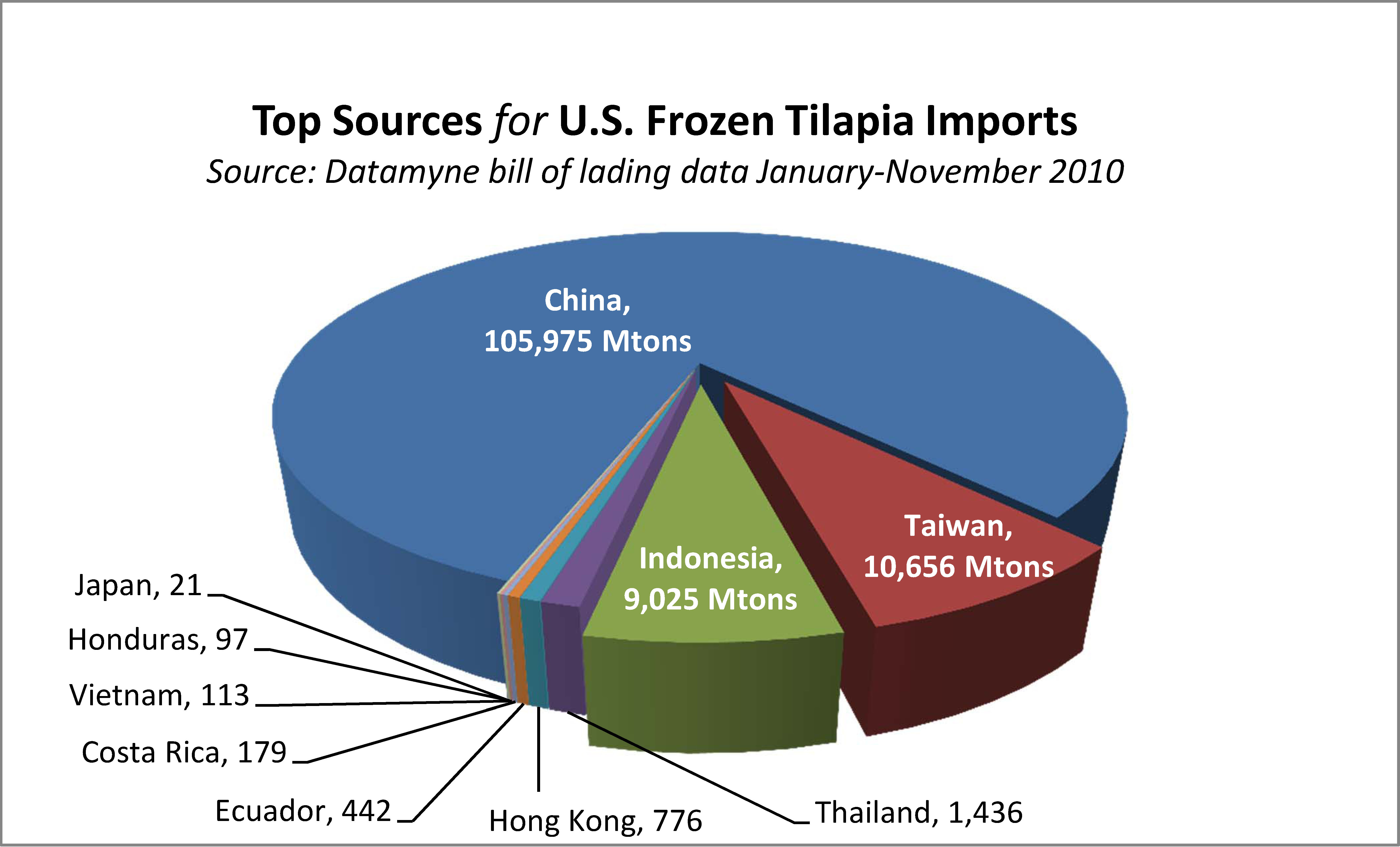WWF’s Aquaculture Dialogues yield standards for farming tilapia and pangasius
Just before Christmas, the WWF (World Wildlife Federation) released news that tilapia farmed in Indonesia and Honduras will be placed in a brand-new category within its seafood guide: “moving towards certification.”
That’s good news for Indonesian and Honduran fish farmers aiming to bring their seafood to export markets. According to Datamyne trade data, Indonesia is the third-ranked source for frozen tilapia imported by the U.S. (see below).
Honduras ranks ninth as a source for frozen tilapia, but is the top (virtually sole) source for fresh tilapia imported by the U.S. Over 2,000 metric tons were imported last year by U.S.-based Regal Springs Tilapia from its Honduran farm, Aquafinca St. Peter Fish, the first to be found compliant with the new WWF certification standard.
WWF certification is meant to confirm that the production system meets standards that minimize negative environmental and social impacts of aquaculture. These standards are still a work in progress, subject for debate in eight species-specific roundtables, or “Aquaculture Dialogues,” initiated by the WWF to reach consensus on sustainability in farming salmon, shrimp, tilapia, trout, pangasius, Seriola, cobia, abalone, mussels, clams, oysters and scallops. Once standards are finalized, a separate Aquaculture Stewardship Council (ASC), to be established in 2011, will adminster the certification process.
To date, standards have been completed for tilapia and pangasius farming, with certification conducted by third-party provider, GlobalGAP (Global Partnership for Good Agricultural Practice).
WWF is not the only NGO involved in setting environmentally benign standards for aquaculture: it describes itself as an equal stake-holder with the more than 90 NGOs participating in the Aquaculture Dialogues. (Note that not all NGOs agree that the ASC is the way to defend the natural environment from fish farming.) Nor are the emerging ASC standards the only measures available. NGO Friends of the Sea already offers certification of sustainability.The industry’s own Global Aquaculture Alliance provides certification in its Best Aquaculture Partices (BAP) for tilapia farming.
But the WWF “seal of approval” carries weight with consumers … as Vietnamese fish farmers realized last year when the WWF moved their pangasius or tra fish from its “yellow list” (good-enough-in-a-pinch alternatives to “green list” fish) to its “red list” of products to avoid. Citing a lack of evidence for WWF claims that its aquaculture is an environmental pollutant, Vietnam protested that the listing was a mistake jeopardizing exports estimated to be worth as much as US$1.5 billion annually. On December 15, following negotiations with the Vietnamese government and industry representatives, the WWF announced an agreement to re-categorize Vietnam’s pangasius aquaculture, making it the first to win the new “moving toward certification” label.




